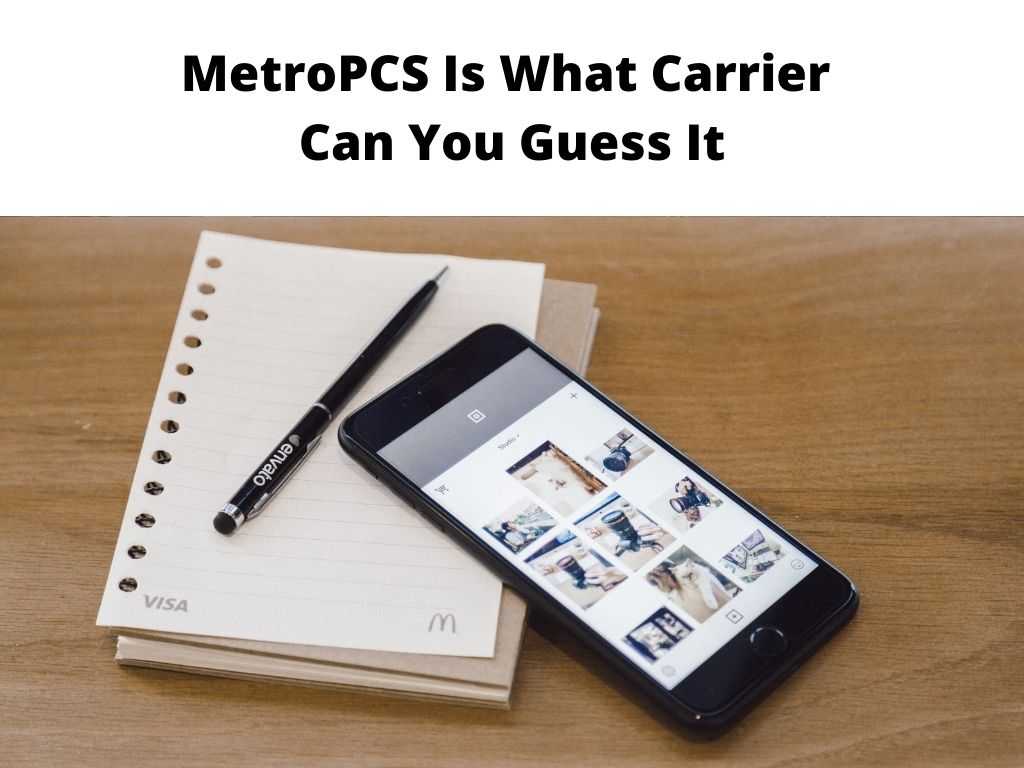MetroPCS, now rebranded as Metro by T-Mobile, has long been a player in the world of wireless carriers. Offering a compelling blend of features, plans, and affordable prices, it’s become an attractive choice for many. However, a common question that often surfaces is, “MetroPCS is what carrier?” It’s a fair question, and we’re here to deliver an informed answer.

TL;DR: MetroPCS, now known as Metro by T-Mobile, is a prepaid wireless carrier that operates as a subsidiary of T-Mobile US. They offer nationwide coverage and several plan options, all backed by T-Mobile’s network.
Scroll down to get a detailed answer
Table of Contents
An Overview of MetroPCS
Established in 1994, MetroPCS was once an independent telecommunications company. Over time, it evolved into a major player in the prepaid wireless segment. In 2013, T-Mobile US completed its acquisition of MetroPCS, rebranding it to Metro by T-Mobile. As a result, Metro by T-Mobile operates as a Mobile Virtual Network Operator (MVNO) under the T-Mobile network.
This means, while T-Mobile owns the network infrastructure, Metro by T-Mobile offers its own pricing, plans, and customer service. This alignment with T-Mobile allows Metro to provide robust, nationwide coverage while still maintaining its individuality.
MetroPCS’s Coverage and Plan Offerings
Since Metro by T-Mobile operates on T-Mobile’s network, it benefits from the same expansive coverage. This includes 4G LTE and, increasingly, 5G capabilities. Metro offers a range of plans, from unlimited high-speed data to lower-cost, limited-data options.
Also, features such as mobile hotspot allowance and Amazon Prime or Google One memberships are available in selected plans.
| Feature | Description |
|---|---|
| Coverage | As a subsidiary of T-Mobile, Metro by T-Mobile uses T-Mobile’s nationwide network. This means that the coverage is quite extensive, covering a large part of the United States. However, coverage can vary, especially in rural or remote areas. |
| Plan Offerings | Metro by T-Mobile offers a variety of plans, including: |
| – $30/month: 2GB high-speed data | |
| – $40/month: 10GB high-speed data | |
| – $50/month: Unlimited high-speed data + 5GB hotspot data | |
| – $60/month: Unlimited high-speed data + 15GB hotspot data + Amazon Prime | |
| Additional Features | All plans include access to T-Mobile’s 5G network (where available), unlimited talk and text, and features like Wi-Fi calling and visual voicemail. The $60/month plan also includes a subscription to Amazon Prime. |
| International | For an additional fee, Metro by T-Mobile offers features like international calling and texting, as well as data roaming in select countries. |
Delving Deeper into Metro by T-Mobile
Now that we’ve established what carrier MetroPCS or Metro by T-Mobile is, let’s dive deeper into some specific aspects of this carrier that may be helpful for potential customers.
Metro by T-Mobile’s Network Performance
As Metro is a subsidiary of T-Mobile, its network performance closely aligns with T-Mobile’s. This means users can expect a strong, reliable connection in most urban and suburban areas, thanks to T-Mobile’s robust infrastructure. T-Mobile’s network has also made considerable strides in rural areas, and thus, by extension, so has Metro.
However, it’s essential to note that as an MVNO, Metro’s traffic may be deprioritized during peak times in favor of direct T-Mobile customers. This could result in slower speeds for Metro users in congested areas or during busy periods.
Features and Perks of Metro
Metro by T-Mobile offers several standout features that may be appealing for many customers:
- Affordable, Flexible Plans: Metro’s plans are typically more affordable than many of the ‘big players’ in the industry. This, coupled with the flexibility of prepaid, no-contract service, can be quite enticing.
- Multi-line Discounts: Metro offers attractive discounts for families or groups with multiple lines. The savings increase significantly with each additional line.
- Bundled Perks: Certain Metro plans come with perks like Amazon Prime or Google One memberships, offering excellent added value.
The Drawbacks
While Metro by T-Mobile (formerly MetroPCS) offers a number of benefits, such as affordable plans and access to T-Mobile’s extensive network, there are also some potential downsides to consider. Here are a few potential cons:
- Deprioritization: As a Mobile Virtual Network Operator (MVNO), Metro by T-Mobile’s traffic may be deprioritized in favor of T-Mobile’s own customers. This means that in times of heavy network congestion, Metro by T-Mobile customers may experience slower speeds.
- Coverage in Rural Areas: While T-Mobile’s network is extensive, it can be less reliable in rural or remote areas compared to some other carriers. If you live or frequently travel to rural areas, you might want to consider this.
- Customer Service: Some users have reported less than satisfactory experiences with Metro by T-Mobile’s customer service.
- Limited Phone Selection: While Metro by T-Mobile does offer a range of phones, the selection can be more limited compared to larger carriers. If you want the latest and greatest phone or a specific model, it might not be available.
- Hotspot Data: While Metro by T-Mobile’s unlimited plans include hotspot data, the amount is limited. Once you’ve used up your hotspot data, speeds are significantly reduced.
- International Roaming: Metro by T-Mobile’s international roaming options are more limited and can be more expensive compared to some other carriers.
Comparing MetroPCS With Other Carriers
MetroPCS vs. AT&T
While both Metro and AT&T offer robust nationwide coverage, there are notable differences:
- Pricing: Metro often tends to be more affordable, making it an attractive option for budget-conscious consumers.
- Plans: Metro, being a prepaid service, requires upfront payment, while AT&T offers both prepaid and postpaid plans.
- Network: Metro uses T-Mobile’s network, while AT&T operates on its own.
MetroPCS vs. Verizon
Similar to the comparison with AT&T, it’s crucial to understand that:
- Metro and Verizon operate on different networks. While Metro utilizes T-Mobile’s network, Verizon has its own network.
- Verizon, traditionally, offers more extensive coverage, especially in rural areas. However, Metro’s coverage has significantly improved and continues to grow.
Looking at Alternatives: Other MVNOs
While Metro by T-Mobile is a strong contender in the prepaid wireless market, it’s not the only player. Other MVNOs like Boost Mobile, Cricket Wireless, and Straight Talk offer their unique set of features and benefits. I recommend potential customers to compare these options carefully, considering factors such as network coverage, pricing, plan features, and customer service quality.
Conclusion
In conclusion, Metro by T-Mobile is a formidable player in the prepaid wireless carrier market. With its affordable pricing, varied plan options, and T-Mobile’s robust network coverage, it’s a valid consideration for many consumers. The choice between Metro and other carriers, ultimately, depends on individual requirements, budget, and preferred network coverage.
FAQ
Is Metro by T-Mobile a carrier?
Yes, Metro by T-Mobile is a prepaid wireless carrier. It operates as a subsidiary of T-Mobile US, offering its services on T-Mobile’s network.
Is AT&T same as Metro?
No, AT&T and Metro are not the same. AT&T is a different carrier with its own network. Metro, on the other hand, is a subsidiary of T-Mobile and operates on T-Mobile’s network.
Is Metro part of Verizon?
No, Metro is not part of Verizon. Metro is a subsidiary of T-Mobile and utilizes T-Mobile’s network for its services.
Is MetroPCS and Verizon the same?
No, MetroPCS (now Metro by T-Mobile) and Verizon are different entities. They are separate carriers and operate on different networks. Metro by T-Mobile operates on T-Mobile’s network, while Verizon has its own network.


